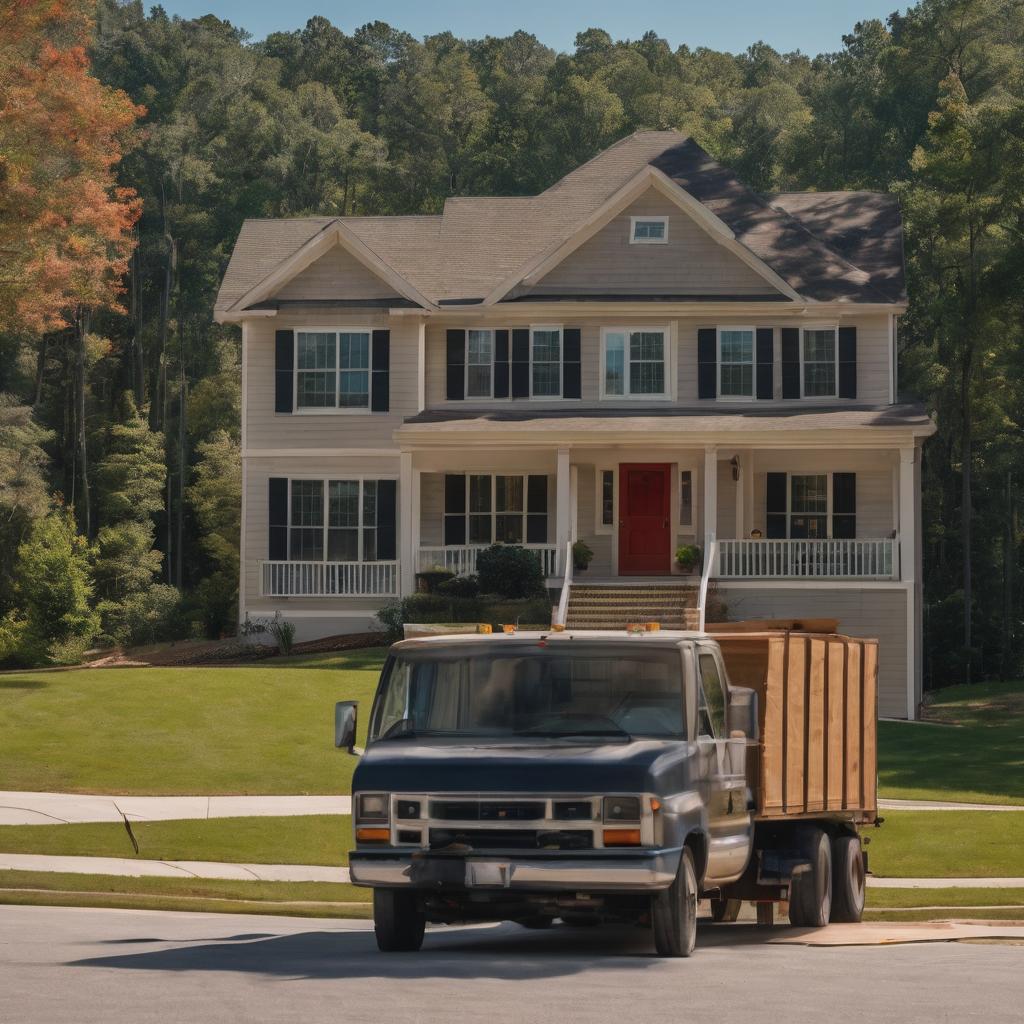You could experience disorientation and an unsettling sense of not really belonging when you move to a new city. Time will often help you get over the initial shock, but the early post-move time can be very difficult, particularly if you have no idea what to do.
However, the time after a move need not be difficult at all. The checklist below will provide you helpful tips of what to do after you move into a new residence. The truth is, you won’t even encounter any difficult or perplexing circumstances if you manage your time effectively. All set to tackle some quality post-move checklist items?
Sure, you know what follows next—unpacking—but how about discovering the mysteries of your new house? Yes, you will need to update your mailing address, but have you already located reputable medical professionals? And yes, you should register your automobile following your cross country move, but isn’t establishing new friends your first priority?

Plan your post-move schedule.
Greetings from your new house!
You weren’t overcharged by your professional movers, by the way? As soon as you cross the threshold of your new home or apartment, your post-move phase begins. You’ll undoubtedly notice that the very first day after moving into a new home is usually defined by a feeling of relief that the house move is finally over and now you can finally shake off that nerve-wracking build-up of stress and anxiety.
Sadly, you won’t have much time to settle in, at least not just yet, because there are a lot of tasks to complete while moving into a new home. In actuality, it’s really crucial that you manage your post move period the best feasible way. How much did your personal moving calendar encourage you to make the most of each and every hour of the day leading up to the residential move? You’ll now need to take precisely identical action.
Yes, you should think about making a fresh to-do list with everything you need to finish now that the move is done. New house chores? tasks in a new city? It is too important to waste your time doing nothing, therefore start working. Again.
- Sort through the pile of boxes.
First to unpack: which rooms?
The kitchen need to be the second room to be unpacked after the bathroom and bedroom.
The nice thing about unpacking is that you can take your time and finish it at a far more comfortable pace than while packing your house for a move. While it’s true that unpacking after a move takes time and should not be underestimated, moving day is not a pressing deadline that you have to scramble to meet.
Your essentials boxes, which are packed with items that are absolutely necessary, should be the first boxes you unpack. Then, since the bedroom and bathroom are the two rooms you should set up first, you should begin opening all of the containers with those labels. Ultimately, aren’t your thoughts mostly focused on grabbing a quick shower and relaxing on your cozy bed?
Unpacking is undoubtedly among the first things you should do when you move into a new house. The good thing is that you may adjust the pace of unpacking to suit your needs at any time.
- Find out what is behind your new house.
Most of the time, your new house will be entirely unfamiliar to you, so it’s time to bring out your inner adventurer and take a tour of the interior. Keep an eye out for any unsettling indications of an infestation, check the pipes for leakage, and search for any indications of prior damage. In addition, find the main water stop valve and the fuse box in case of emergency. Next, note the readings from your electricity and water meters.
While giving your new house a tour, make mental notes about how well-secured it is against robbery and uninvited entry, as well as against Mother Nature’s destructive forces. The new home should also be carefully kid-proofed if you have a young child.
Are the windows and doors as secure as they should be? Are there smoke detectors installed? How about strategically positioned fire extinguishers on every level? It goes without saying that the less secrets your new home has, the better off you will be.
- Modify your mailing address
The postal address for your new residence will differ whether you moved across town, to a new city in the same state, or across the entire country. This simply implies that your normal mail will still be sent to your previous address if you don’t take the time to change it soon after the house move, which is bad.
Changing your address is one of the most important things you should do as soon as you move into a new home. Rather, take action as soon as you can. You are given two alternatives here: 1) you can take a walk to the local post office in person and fill out a change of address card, or 2) you can leverage the ease of the worldwide network and do it online via the USPS website.
Oh, and remember to give the new owners/renters of your previous apartment some cash so they can forward your mail until the whole address change is implemented.

- Enroll your child in a different school.
If you recently moved into a new home with a child of school age, you need to be aware of how crucial it is to locate them a new school so they can finish their education. That new school ought to be a respected one too so that your youngster can get the greatest possible start of his or her life.
If you didn’t select a reputable school for your child before the transfer, you need to do so right away. And since it’s one of the things you have to accomplish when relocating to a new place, it’s imperative that you do that significant assignment by the deadline.
Initially, ask friends, coworkers, or even neighbors who just so happen to know which schools are good and which are not for recommendations. While obtaining additional information from the internet is always beneficial, the best course of action is to take your school-age child to visit a few different schools and talk to the principal or a few teachers in order to gain a more realistic understanding of what to anticipate going forward.
Remember to prepare the necessary paperwork before registering your child at the school of your choosing.
- Locate appropriate medical providers
Look for a medical professional
You must locate a reputable pediatrician if you recently moved with a young child.
You never know how the stress of a recent transfer and the conditions of a new city may affect your body and mind. One possible issue is that, in the event that you are sick, need a specific medical record from a doctor, or simply have a cold, the doctor you have known and trusted for years will no longer be able to see you.
Finding a new family doctor for you and your family, as well as a new veterinarian for your pet, if necessary, is the next vital item on our moving into a new home checklist. Finding the greatest health care provider for you still comes down to recommendations from people you can trust, just like it did with the school.
Always remember your unique medical needs when choosing between a primary care physician and a specialist, and act with that decision in mind. Other crucial things to think about are the years of experience and personality type of your chosen healthcare practitioner.
- Let your car be registered
After moving to a new state, what should one do?
Have you had your vehicle transported? It is important that you register your vehicle in the new state if you recently traveled across one or more state boundaries to get where you were going. You might also need to transfer your driver’s license, just so you know. The good news here is that both these activities are very basic, so all you need to do is find the time to visit the local DMV office to take care of it.
You can use the DMV office finder to find the location of the local DMV office if you’re not sure where it is. It’s crucial to keep in mind, though, that the new state’s registration date for your car could be anything from ten days to a whole month. Thus, in order to avoid any fines, either finish this task within the next several days or get in touch with the state’s central DMV office for more information.
- Assist your animals in adjusting
Assist your pet in adjusting to the transfer
Your dog’s best recovery from a move is outdoor play.
You shouldn’t be too concerned about what to do when you move into a new home if you recently moved with a pet or dogs. This is so straightforward since one of the solutions is too obvious: you must ensure that your animal friend is alright following the abrupt change of environment and unplanned step outside of their comfort zone.
The first thing you should do for them is clean your new home carefully because most pets, especially dogs and cats, have keen senses of smell. Taking care of their needs, playing with them more often, and never leaving them alone for extended periods of time are the next best things you can do to demonstrate your love and concern for them.
Nevertheless, allowing your cherished pet adequate time to adjust to their new surroundings is the best thing you can do for them after you move into a new house. If an issue with them after the move continues for longer than a few weeks, keep a careful check on them and think about seeking professional assistance.

- Find new companions
For all parties involved, moving into a new house can be challenging. The recent residential change may have contributed to the development of separation anxiety. You should be upset or even depressed just for moving away from your family and close friends. To exacerbate matters, it’s highly likely that you have no acquaintances in the new city. Not yet, anyhow.
Making new friends is the one thing you should do following the move that will help you become settled in faster than anything else. Try to introduce yourself to the people next door and try to learn more about them. After work, hang out with your coworkers and have an open mind about daring new options to socialize. Join a new club, learn to dance, or consider picking up a pastime that will allow you to meet people who share your interests.
But remember to stay in touch with your former friends, no matter how the new city dynamics take you; this is a tried-and-true way to get over relocation depression.
- Discover your new city.
Of sure, you ought to get to know that new city a little better! Apart from the purely pragmatic aspect of being aware of the locations of the most important locations in the community (supermarkets, banks, clinics, post offices, auto services, schools, banks, significant government buildings, etc.), you will feel more at ease living and working in the new location the more accustomed you become to it.
Go on regular walks of discovery, first around your neighborhood and then the entire city. Acquaint yourself with the city’s notable sites, gain some insight into its past, and perhaps even try to comprehend the people’ overall way of living better. To put it briefly, if you have the courage to venture outside of your cozy new residence more frequently, you should soon have a good rapport with the city you recently relocated to.

